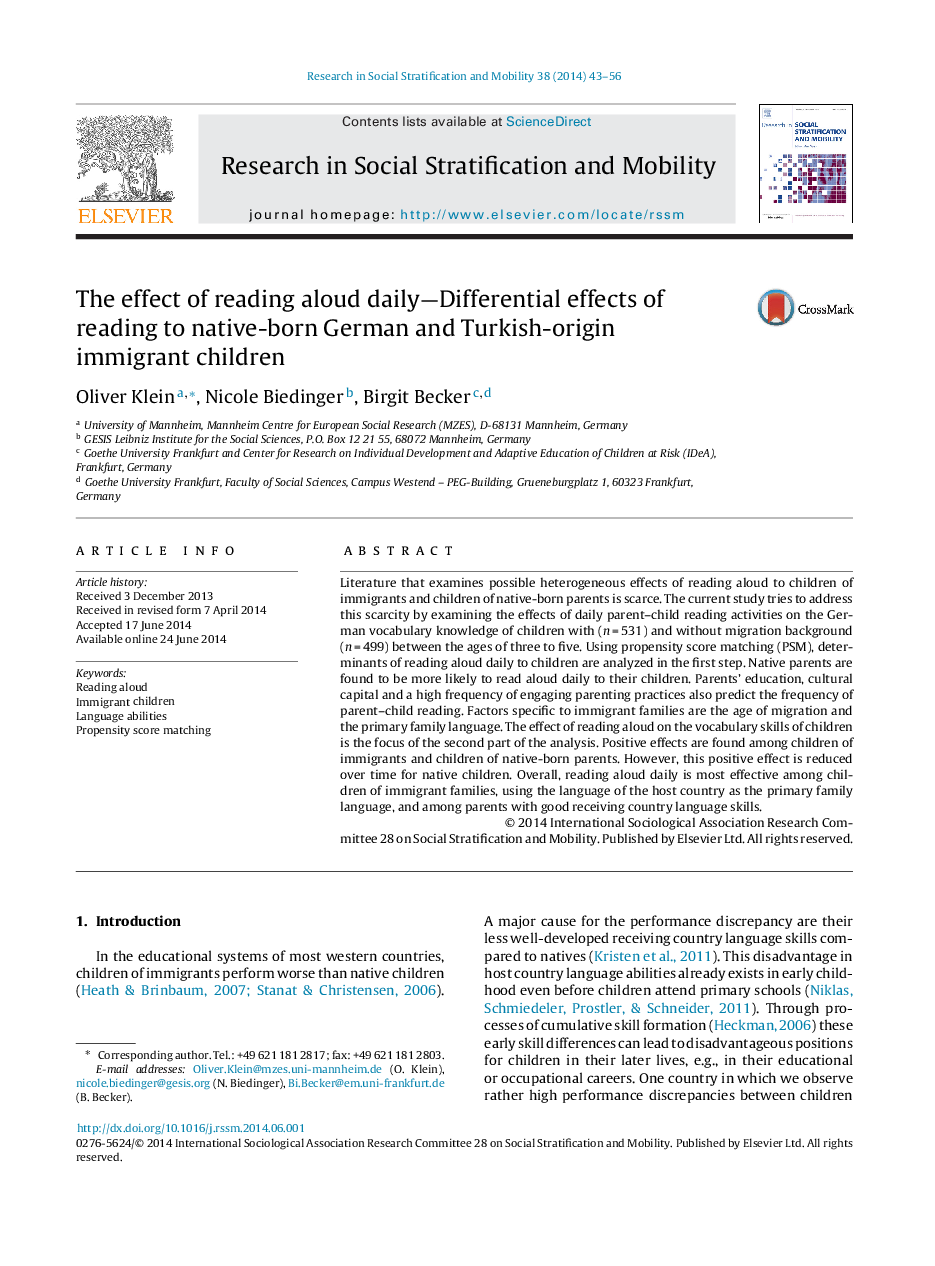| Article ID | Journal | Published Year | Pages | File Type |
|---|---|---|---|---|
| 999577 | Research in Social Stratification and Mobility | 2014 | 14 Pages |
•We analyze the effect of reading aloud in early childhood on language abilities.•Effects in native German and Turkish-origin families are compared.•Determinants and effects of reading aloud are analyzed simultaneously.•Reading aloud daily increases vocabulary knowledge in both groups.•Effects are strongest among immigrant families with good German language skills.
Literature that examines possible heterogeneous effects of reading aloud to children of immigrants and children of native-born parents is scarce. The current study tries to address this scarcity by examining the effects of daily parent–child reading activities on the German vocabulary knowledge of children with (n = 531) and without migration background (n = 499) between the ages of three to five. Using propensity score matching (PSM), determinants of reading aloud daily to children are analyzed in the first step. Native parents are found to be more likely to read aloud daily to their children. Parents’ education, cultural capital and a high frequency of engaging parenting practices also predict the frequency of parent–child reading. Factors specific to immigrant families are the age of migration and the primary family language. The effect of reading aloud on the vocabulary skills of children is the focus of the second part of the analysis. Positive effects are found among children of immigrants and children of native-born parents. However, this positive effect is reduced over time for native children. Overall, reading aloud daily is most effective among children of immigrant families, using the language of the host country as the primary family language, and among parents with good receiving country language skills.
